Excerpt from visual poetry book GHROMYT by J. M. Calleja and Carlota Caulfield"GHROMYT captures 24 hotels that became unique zones of our lives. We played with words and images until finding the expression of our recollections." -Carlota Caulfield From Introduction by Jordi Marrugat Hotels appear in our space-time fabric as conjunctive nodes that collect the countless threads of the travelers' trajectories and open them to the current physical environment, to its supra-historical cultural projection and to inner personal intimacy. They are transit locations to which one abandons the familiar collective to come into contact with another before returning transformed: GHROMYT offers in terstitial zones of detached observation in which memory and novelty exchange flows to turn the traveler into some one else with new experiences, new memories, new images of himself/herself and the world. Linked to space and time, though, they seem like an opening or a pause in which everything momentarily becomes possible above and beyond everything. lts concretion is hardly seen or remembered. lts often homogeneous aesthetic undoubtedly contributes to this. The hotel is not experienced as a zone with its own entity, but as a portal to the wonder of the imagination renewed by contact with a place that, does in deed, impose its concreteness--unfortunately, though, one that is increasingly strained and diffused through rampant globalization. The beauty and strangeness of GHROMYT's poems lies precisely in offering this multiple experience of the hotel in images. This is indicated by its no less strange and beautiful title: a combination of letters in which the random combinatorial nature of any trip seems to have intervened, the names of the travelers (the r and the o of Carlota, the m of J.M. Calleja), the h of hotel and a visual and playful use of language (the o to the center, as a nucleus, a mirror, a clock, a zero,a multidirectional starting point followed by "myt," evocative of "meet," the hotel as meeting place). Each GHROMYT poem builds the image of a hotel as a gathering of experiences of different orders: personal memories, the silhouette of a city, its representative works of art, its known inhabitants, elements of the national flag, the rain... The language that Calleja and Caulfield construct, with its combination of concrete and visual poetry, its collages, paintings, and objets trouvés, proves magnificently capable of transcending the simplicity of the superficial, unconscious, linear gaze. The mixture of artistic resources within the book of poems accounts for the essential complexity of the conjured experience. The achieved form is already by itself the content of each poem. lt is not limited to giving an image that tries to re cover what has already been lived, but one that becomes a new experience enriched by the meeting of two poets. It transforms the personal memory from the shared present: it is projected backwards and forwards: photography is immersed in the future. Each page of GHROMYT does not seek the incautious evocation of a stay in a hotel, but is fully transfigured into a hotel where you can live, having new experiences. GHROMYT is available from REDFOXPRESS. J. M.Calleja was born in Mataro, Spain in 1952. Visual poet, multimedia artist and performer. Formed in the world of the image (photography-cinema), the artist realised various experimental films (8mm) between 1976-81. Coordinator and curator of different creative events.Expo sitions: Poesia Visual del'Estat Espanyol. Lleida1989(trav elling 1 year) and Poesia Visual Catalana. Barcelona 1999 (travelling 2 years). Anthologies:1 7 (Spanish Experimental Poetry) withJ.A.Sarmiento (1980),Poesía Experimental-93 (1993), Vl(r)US (2005), Poéticas Experimentales Catalanas with JordiMarrugat (2018),.•• xyzA-Cdef... (Anthology of Argentine and Catalan Visual Poetry) with Claudio Mangifesta (2019) and Vl(r)US-dos (2020). lnstallations realised in Greece, México,Uruguay,Germany, France, ltaly and Spain. Performances realised in México, Brazil, Argentine, Uruguay, Italia, Germany, France and Spain Personal books: Llibre de leshores (1981), + Que mai per als ulls (1988), Mixtures (1993), Transfusions (1996), Alfabia (2000), Desfilada (2003), Homenajes (2007), Pets (2009), Mes de Maria (2011), ABCDarum with K.P.Dencker (2013), Huellas. Poemas visuales 1974-2006 (2013),Album 013(2016),Travessia with C.Mangifesta (2017),Dietari 015 (2018), Aquiahoraotravoz with A.Thornton (2021) and ln édits deis setanta (2021). www.jmcalleja.com Carlota Caulfield was born in Havana, Cuba.A poet, essayist and translator, she has been recognized with many awards, among them the 2016-2019 Mills College W.M. Keck Professor in Creative Writing, the First lnternational Poetry Prize "Dulce María Loynaz," (Spain-Cuba 1999), and the lnternational Poetry Prize, Poets of the World, ("Ultimo Novecento") ltaly,1988. She has been a Visiting Scholar / Poet in Residence at the University of London, University College London, University of Grüningen, New Mexico State University, Pomona College and the University of Barcelona. She is Professor of lberian and Spanish American Studies at Mills College (California).
She is an active participant in Experimental and Visual Poetry events. Caulfield also co-organized art projects and exhibitions in Spain, Mexico, New York, Holland, Oakland and SanFrancisco. She is the producer of the documentary Llígans. The Art of the Catalan Painter Carme Riera, directed by Ona Vega in 2008.Her work Le malheur d'aimer. Home naje a Dora Maar (piece of art) was exhibited in "Gráfica contemporánea y poesía experimental." Sináptica Exhibi tion, Mexico, 2021. She is currently finishing a poetry book about New Mexican birds and completing her collection "Dreaming birds," drawings from the red dessert house (2020-2021). www.intelinet.org/sg_site/Caulfield
0 Comments
Plegarias en la playa by Ricardo José González-Rothi El viento soplaba, estrujando los surcos y dunas de arena, tanto agitando con ánimo, conchas, estrellas y todo el aserrín marino. Que noche, y éste viento que me canta en lo oscuro, y las olas que me lloran, golpeando como sin abandono la arena con lágrimas frías, saladas. Cuando miro hacia el cielo, un soplo de aire remolca las nubes, abriéndole paso a una lazca de luna, y al acarecer mi espalda, me arrastra con mágica vela. Los misterios que esconden los caracoles de mar serán míos, vida de pescador con sudor en la frente será ésta, la mía. En el mar contemplaré las sirenas chismeando sobre amores perdidos y de paisajes marinos, donde tempestas curiosas hunden secretos profundos. Mientras miro al horizonte, pronto todo cesa, y la frialdad en mi espalda no me deja descansar Un punto de luz lejano, fijo trás las olas, papadeando vez en cuando como faro en la distancia. Es hora de dormir, y con falsas esperanzas espero de que al cerrar mís ojos, mis huellas quedarán allí, en arenas de mis sueños, escondidas bajo las olas. Y cuando el sol me despierte le pido que como un beso en mi frente, mi amante, el mar, me traiga calor y luz, y brizas frescas en la mañana. 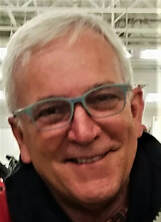 An academic physician and scientific writer, Ricardo José González-Rothi has had his fiction, creative non-fiction and poetry featured in the U.S. and in the U.K., in Acentos Review, Hispanic Culture Review, Biostories, Foliate Oak, Lunch Ticket, The Bellingham Review, Molotov Cocktail, Star 82 Review, Wingless Dreamer, Litro and others. Born and raised in Cuba, he came to the United States as a refugee in his teens and now resides in North Florida. Twitter: @Ricardo2Almas website: gonzalezrothiauthor.com Rinconcito is a special little corner in Somos en escrito for short writings: a single poem, a short story, a memoir, flash fiction, and the like. On Reincarnation by Michele Shaul Were I to subscribe to reincarnation I would call him Hugo Augusto Anastasio Fidel Men interested in their own aggrandizement In the guise of stabilizing the whole Contemporaries abound that offer parallel Egos and interests They connected, Bonding in their embodiment of self-interest, exploitation, and greed But even those bonds were not enough to fulfill his insatiable needs, to maintain his self-absorption, To bolster his insecurities His counterparts quickly fell short in worshipping at his shrine Escalation of efforts to uplift his need pushed ahead No concern for consequences No shame at deception Yet soon, God willing, Our own defective incarnation will disperse just as the edge of twilight slides into obscurity.  Michele Shaul was born in Oakland, CA to a Kansas farm boy and a Key West girl. Her mother’s maternal family immigrated to Havana, Cuba and subsequently Key West, FL in the 1800s. Her paternal grandfather was born in Havana and moved to Key West where he married her grandmother and managed the local tobacco factory until his death. Michele currently lives with her family in Charlotte, NC where she is the Director of the Center for Latino Studies and a professor of Spanish at Queens University of Charlotte, formerly serving as Chair of the World Languages Department for 22 years. She is co-founder and co-editor of the e-journal Label Me Latina/o and is involved in several arts and social outreach projects that use art as a vehicle to address the topics of diversity and tolerance. Her writing has been predominantly academic in orientation although in recent years she has had the opportunity to write more creative pieces. Her critical essays are published in a number of journals and collections. Her translation of the novel The Suitcases was published in 2005 and her poem “Vida cercada” appeared in Minerva (5 (2), septiembre-diciembre 2005. Mellen Press published her book A Survey of the Novels of Ana Castillo: A Contemporary Mexican American Writer (2016). Her short story “Mixed Reviews/Reseñas mixtas” has been selected for inclusion in Nos pasamos de la raya/We Crossed the Line Vol. 2 (Slough Press, 2021 anticipated). The collection of essays Not White/Straight/Male/Healthy Enough: Being “Other” in the Academy coedited with Michael Moreno and Kathryn Quinn-Sánchez was published by Cambridge Scholars Publishing (2018). Her essay “We Met Pregnant at the Snack Bar” is included as part of the collection. The book Contemporary U.S. Latinx Literature in Spanish (Palgrave, 2018) was co-edited with Kathryn Quinn-Sánchez and Amrita Das. Teatro latino: Nuevas obras de los Estados Unidos, coedited with Trevor Boffone, Amrita Das, and Kathryn Quinn-Sanchez, was published by La Casita Grande (2019). The collection of essays Whiteness in the Workplace edited with Michael Moreno and Kathryn Quinn-Sánchez was published by Cambridge Scholars Publishing (2020). Her translation in partnership with Erin Debell and Liliana Wendorff of Miguel Orosa’s play Brave Women and Laughter (Quite a long night’s journey throughout Latin America) was published by Proyecto Ñaque Editorial (2020) and her translation of Enrique Weichs’ Anteayeres (Before Yesterday), also teaming with Erin Debell, is currently seeking a publisher. Michele directs the Latino Studies Project which is a student/faculty research project that seeks to document the story of the Latino population in the Charlotte region. She is the recipient of the Queens’ 2016 Hunter-Hamilton Love of Teaching Award. Poems by Carlota Caulfield from her book Los juguetes de Bertrand / Bertrand’s ToysReconocimiento Hacía bocetos. Aquí y allá una palabra. Después todo fue simple, un fuego interior que lo consumió de golpe. Al poco tiempo, un exilio impuesto. Después un cambio de fotografías y un borrón en la fecha de nacimiento. Bordes geográficos desvaneciéndose y confundidos en garabatos infantiles, y voces, voces infinitas en asedio. Esperas. Reconstruyes tu perfil y tu acento, vuelves a entrar en tu pasado, permaneces en uno de sus rincones, recorres los barrios de sus excesos, y nunca eres un huésped inoportuno, eso nunca te lo perdonarías. Recognition He made sketches. Here and there a word. Later on it was all-simple: an inner fire gobbled him up. A little later, an imposed exile, Later on, different photographs and a blotch over his birthdate. Geographic lines faded and interchanged over infantile scribbles, and voices, infinite voices laying siege. You wait. You redesign your profile and your accent, you reach the past, you settle into one of its corners, you stroll the neighborhood of your excesses, and you're not an inopportune guest, you'd never forgive yourself that. El oratorio de Aurelia La primera mirada es una mano en movimiento. Una gaveta se abre, otra se cierra, y así combinaciones imposibles del cuerpo. Un trapecio de lo familiar, del perchero y la colcha de la abuela. Cortinas donde se esconde la niñez, esas cortinas rojas del teatro, y el show del circo imaginario para mayores de ocho años. Sabiduría del acróbata y del pintor en su gotear de rojos y esos verdes y esos amarillos. Casi se pueden tocar. Entonces, los waltzes pirotécnicos, los abrigos y vestidos con vida propia, la música de acordeón, tangojazz, y trombón, eso parece. Y cuando todo se ha vuelto un Magritte, el timbre de un móvil desata una pelea violenta entre los otros, audiencia de marionetas crueles. Fin de la primera parte. Aurelia's Oratorio At first glance, it's a hand in motion. A drawer opens, another closes, and thereby impossible body combinations. A trapeze of the familiar, of the hanger and Grandma's bedspread. Curtains where childhood hides, those red curtains of the theater, and the show of the imaginary circus for those over eight. Wisdom of the acrobat and the painter in his splashing of reds and those greens and those yellows. You can almost touch them. Then the pyrotechnic waltzes, the coats and dresses coming to life, accordion music, tangojazz and trombone, that's what it's like. And when everything has turned into a Magritte, the ring of a cellphone unleashes a violent fight among the others, audience of cruel marionettes. End of part one. The poem “Aurélia’s Oratorio” alludes to the theater piece of the same name, a combination of a magic surreal show and acrobatics created and directed by Victoria Thierrée Chaplin that her daughter Aurélia Thierrée performs with extraordinary mastery and grace in theaters around the world. Nueve poemas para Charlotte 1. Agrietadas de pasión, las manos del titiritero descansan. Sólo en un pestañear, las marionetas se mueven y se confunden, y se enredan en sus cuerdas. Conmoción de un instante. 2. Dentro del armario, la sombra de un antiguo Pinocchio es una marca perenne. Así se hace la memoria y eso es lo mejor de todo, dejar que el corazón se fragmente con el tacto. Lo inexistente ha dejado un recuento. 3. Sus labios en una taza de té. Un sabor verde de Himalayas se confunde con la vasija terracota curtida por el uso. Capas y capas de residuos, testigos impregnados en el barro. Pone a un lado su diario. Mapa Mundi. 4. Su nombre reaparece en diferentes formas. En caligrafía es trazo llamado Tao. Su efímera inscripción lleva la espiritualidad de los sentidos. Digo y cuento, aunque raras veces es también toque de inscripción propia. 5. Puertas hinchadas de aguas a destiempo, como si la torrencial lluvia se hubiese vuelto un dulce y pegajozo delirio mientras observas las vestiduras extraviadas de la madera. En la ventana, una silente figura vacila. Y de pronto, el espacio de sonidos se confunde con grises, blancos y verdes. Lo de afuera entra y roza tus manos. 6. Ella, la que eres tú en ciertos días, deja un rastro de bruma y se reclina sobre varios senderos. Atrapar lo inasible se vuelve aquí furor y apatía. 7. Pasas bordeando voces. No quieres quedarte en la orilla de la muerte. Como un animal ebrio de miedo te enroscas hasta que la lluvia cese. Palabras en desorden. Trabalenguas. 8. Tú misma eres una abstracción. Todos los remedios disolviéndose. Noches de insomnio cercanas a la locura. Así tu cuerpo. Las treguas conjuradas. La parálisis un abismo de telas. La corrugada pesantez de tu espalda mancillada por bloques terapeúticos. 9. Mientras intocable hasta en la palabra, la presión de dedos y el aire denso de lugar a lugar, a tus labios coarteados les frotas unas gotas de miel y los pules como si fueran un desgarrón purpúreo. Así tus huesos, nervaduras de sombras chinescas lanzadas al piso. Tú. Nine Poems for Charlotte 1. Cracked by passion, the puppeteer’s hands rest. With only a blink, the marionettes move and are baffled, and get tangled in their cords. The commotion of an instant. 2. Inside the wardrobe, the shadow of an ancient Pinocchio is a perennial imprint. This is how memory is made and that’s the best of it all, to allow the heart into pieces if touched. The non-existent has left a trace. 3. Her lips sipping a cup of tea. A Himalayas’ green flavor is fused with the terracotta cup stained by use. Residual layers and layers, witnesses impregnated in the clay. She puts aside her diary. Mapa Mundi. 4. Her name reappears in different ways. In calligraphy it’s a pen stroke called Tao. Its ephemeral inscription carries the spirituality of the senses. I say and tell, although rarely it’s also a touch of self-inscription. 5. Doors swollen by untimely waters, as if the torrential rain had become a sweet and clinging frenzy while you observes the lost garments of the wood. In the window, a silent figure hesitates. And suddenly, the space of sounds blends with grays, whites and greens. The outside comes in and grazes your hands. 6. She, the one you are on certain days, leaves a trace of mist and bends, over several paths. Here to grasp the unreachable is fury and apathy. 7. You stroll around voices. Not wanting to remain on the verge of death. Like an animal drunk with fear you huddle until the rain stops. Words in disorder. Tongue Twisters. 8. You are yourself an abstraction. All solutions are dissolving. Nights of insomnia close to madness. So is your body. Conjured ceasefires. Paralysis, an abyss of cloths. The corrugated and heaviness of your back sullied by therapeutic blocks. 9. While untouchable even by words, the pressure of fingers and the misty air from place to place, onto your cracked lips you rub some drops of honey and you polish them like a purplish tear. And your bones, too, Chinese shadows nervures tossed on the floor. You. Bosques de Bélgica Voz suelta. Pura respiración. Labios de breves heridas. Después, un tañido. Boca sobre el metal. Voz hueca y los labios un pico abierto de pájaro. El aire es murmullos, rumores, silbidos, y marca permanente en la cámara interio. Rapidez del movimiento de la vara, privilegio de una mano. La mano tiene forma de U. Es una U. En el cielo de Berkeley hay pocas nubes, decías lentamente. Cierto, el aerófono es latón ligero, tríptico en un cuadro donde un trombón de vara parece pájaro en vuelo y alas de ángel. ¿Quién recuerda el nombre del cuadro? ¿Cómo se llamaba el pintor? Belgian Forests Voice unleashed. Pure breathing. Lips of brief wounds. Then, a note. Mouth to metal. Hollow voice and lips a bird's open beak. The air murmurs, whispers, whistles, and permanently marks the inner chamber. Rapidity of the valve's movement privilege of a hand. The hand is U shaped. It’s a U. In the Berkeley sky, here are few clouds, you were saying slowly. True, the aerophone is a light brass triptych in a painting where a valved trombone looks like a bird in flight, and angel wings. Who remembers what the painting is called? What was the painter's name? 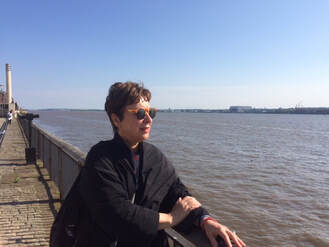 Photo by David Summer at the Mersey in Liverpool, UK Photo by David Summer at the Mersey in Liverpool, UK Carlota Caulfield is a Cuban-born American poet, writer, translator and literary critic. She has published extensively in English and Spanish in the United States, Latin America and Europe. Her most recent poetry books are Cuaderno Neumeister / The Neumeister Notebook (2016) and Los juguetes de Bertrand / Bertrand’s Toys (2019). She is the recipient of several awards, among them The International Poetry Prize Dulce María Loynaz and The Ultimo Novecento, Poets of the World. Caulfield has also published widely on Argentine poet Alejandra Pizarnik, as well as on other Latin American and Latinx poets, including Magali Alabau and Juana Rosa Pita. She is the co-editor of A Companion to US Latino Literatures (2012 &2014) and Barcelona, Visual Culture, Space & Power (2012 & 2014). She is Professor of Spanish and Spanish American Studies at Mills College, Oakland, California. Mary G. Berg, a Resident Scholar at the Women’s Studies Research Center at Brandeis University, Boston, Massachusetts, has translated poetry by Juan Ramón Jiménez, Clara Roderos, Marjorie Agosín and Carlota Caulfield and novels by Martha Rivera (I’ve Forgotten Your Name), Laura Riesco (Ximena at the Crossroads), Libertad Demitropulos (River of Sorrows). Her most recent translations are of collections of stories by Olga Orozco and Laidi Fernández de Juan.
Dos Poemas del Destino |
| (sobre motivos de George Orwell) |
De niños, junto a un faro, nos creíamos
que ante la oscuridad y las tormentas
los barcos precisaban de la luz.
Hoy sabemos que éramos nosotros
los que más se ayudaban de esa creencia.
Tal vez sea mejor
que todo siga su cauce:
dejar de imaginar, de escribir,
dejar que, incluso en contra suya,
todo siga su cauce.
2.
En ocasiones nada es la mejor solución:
comprobar, sin más, que los días
se engarzan a una arena infalible,
que denigrados los libros
desertan de los estantes,
que prematuramente los cuerpos
se avienen a la ceniza
—los ojos, al vacío—,
que no sirve ya la pregunta
de cuál es o cuál podría ser…,
ni tampoco la respuesta
de que en ocasiones nada
—este poema incluido--
sea la mejor solución.
| Todo el poder que iría adquiriendo la casta de funcionarios (…) lo iría perdiendo el pueblo. José Martí, sobre La futura esclavitud |
nos hace imparciales:
creernos imparciales
nos lleva a la parcialidad.
«Oíd, amigos, la revolución ha fracasado.
Subid las campanas de nuevo al campanario,
devolvedle la sotana al cura y al capataz el látigo»,
escribió León Felipe hace décadas sin incluir
el siguiente reverso tan familiar:
Camaradas, oíd: La revolución ha triunfado.
Subid el nuevo (es un decir) pendón al campanario,
y sin dejar de aplaudir a los torcidos
funcionarios de turno, vedlos cómo se invisten
con la sotana del cura y el látigo del capataz.
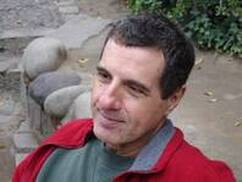
Two Poems/Dos Poemas
Inner chamber of the seashell (divine whisper)
a proof: a tongue sufficient
It would seem that I possess a religious bent;
to contain, direct, refined, and solid
has led me to the five points
of the universe: Quincunx.
Four rooms courtyard
that inclines its multiple forms
that resides in matter
that has vital layers
ceremonial passageways
of other architectures.
Just as the divine spark engenders in the earth Guillermo Marín, Mitla, City of the Dead
life in all its richness, thus the Quincunx, seed
of a revealed cosmology, flowers in a dazzling
system of images and architectural designs that,
by being part of the universe of forms, suffers
frequently from a deceptively elemental logic.
What completes this text
are monumental stones
there where a hand learned how
to move, sculpt and assemble.
Eduardo's voice traces a map of Mexico on the earth
while he tells of how “the colonial chroniclers never
referred to the architecture of Mitla without combined aversion
and admiration… Thus to speak of Mictlán (place of the dead)
we must detach ourselves from the Western concept of death…”
My absurd dizziness no longer rocks in the branches of the tule tree;
now, in the land of the spirits, it is content with a puff of wind
and a bold guffaw that perforates my eardrums. Yes, the church bells
have begun to set loose a timely splendor and murmurs:
Think of it this way, that amid the rubble of my energy suddenly looms
a presence, like that of a hallowed place, door of musical allusions.
I detach myself from the group.
I am content to see.
It matters. Several bolts of air
swerve around my
unfailing audacity
and city of voices
there where the wind
does not sound unfamiliar to the ear
nor is seeing spirits
an act of inner shadows.
What could be loved is erased
and eyes and lips, light and humidity
are stripped bare.
The enigma of flavors
is also resolved.
The night before kisses
Crossed two linguistic points.
Now there is no dialogue.
From the four cardinal points
will soon rise a cold and
ungenerous gust of wind. You will dissolve.
My death is associated with the earth,
but the other dead man in question
will have to cross a long and mighty river.
Techichi the little dog will guide him:
naked he will cross spiky peaks
and drink terrible storms.
The wind will slice his skin
like an orange.
More than any heartbreak, worse than death Albius Tibullus, Book I, Poem VIII
itself, “What hurts is touching the body,
long kisses, and pressing thigh to thigh.”
With transfigured vision,
Friar Bernardo of Alburquerque
ordered built between 1535 and 1580
the façade of the north side
of the Oaxaca cathedral in the image…
From the four room courtyard flow moving friezes of water.
I read: the gods' anger with those who are ungenerous in spirit
was not placated by sacrifices of armadillos, rabbits, birds
and deer. Misers were condemned
to a subterranean palace to hoist dark shadows.
Once again Eduardo's voice blends with my mental torrent
that encircles the marvelous mountains, copulates with the stone
And drinks milk droplets from the tree that used to nourish dead children.
Inhabitants of the clouds. Branches from which I hang.
Schumann lieder that fuse with my own visions.
Copious tongues of rock: to listen, to recognize,
to descend to the interior of a jacaranda:
to design the interior patio
“was to get back onto the trail of my poem Propertius, Book I, Poem IV
after biting my hands unreasonably
and stamping my feet in doubt and anger.”
Some elegiac distiches pound me with excessive skill.
What am I doing in the center of the city of the dead
humming a thousand popular tunes and with all those
poems breaking over me?
What is my skin doing turned into a spongy substance
enjoying each voicemark and stroke,
each perforation, each drop of blood that seeps from my pores?
Blessed recollection,
there where a scornful grimace
offers me landscapes.
Blessed misery of broken borders
that turns the heart into a semi prophet.
that “das harts iz a halber novi”
that is completed and heard
by a system of images:
it hits and turns with skill
for I was born in a city by the sea
with excessively white sands
and I never made a pact
with its hot winds
or its salts projected in my shadows.
If the sea breeze took my breath away,
I drowned and was resuscitated. And my mother
who couldn't hear the voices that filled
the whole house and went with me,
spoke alone with nanny Blasa.
Later they put an amulet on my chest,
There where no one could see presences or memories.
I think only of all the courage I've lacked
to go back to hearing the voices,
raised now, loud, without any semblance of
restraint, flowery battle of my own soul.
POEMA BILINGÜE/BILINGUAL POEM
Estudio cromático
Decir, no tengo más que esto, lo que abre la epidermis
y hace brotar sangre,
lo que queda cuando la muerte lo arrasa todo,
menos los sonidos del cuerpo.
Y así las uñas guardarán su color rosáceo,
los senos su firmeza,
el cuello su tersidad.
Reconocerás el privilegio enorme que se aloja
en las venas y podrás descender a un centro de quietud
sin aferrarte a nada.
Entonces la respiración empezará una vez más,
y con ella una salivación anfibia repugnante
hasta que tu mano se mueva con rapidez
y el sudor pierda su pestilencia.
Pero no sufrirás vértigo.
La avalancha caerá sobre ti como bendición.
Tu boca vibrará y escupirá hilos imperceptibles.
Después llegará el viento loco y comenzará el concierto.
Chromatic Study
You'd like to tattoo yourself slowly with the trombone's notes.
Saying: I only have this, this that rips my skin open
and makes blood gush out,
this that remains when death wipes out everything,
except the sounds of the body.
And thus fingernails will keep their rosy hue,
breasts stay firm,
neck smooth.
You will recognize the enormous privilege lodged
in your veins and be able to descend to a center of quietude,
breaking all ties.
Then breathing will begin yet again,
and with it, a repugnant amphibious salivation
until your hand moves rapidly
and sweat loses its pestilence.
But you will not suffer from vertigo.
The avalanche will sweep over you in benediction.
Your mouth will vibrate and spit out imperceptible threads.
Later the mad wind will blow and the concert will begin.
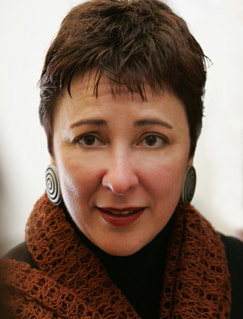
Archives
July 2024
April 2024
February 2024
July 2023
June 2023
May 2023
March 2023
February 2023
January 2023
November 2022
October 2022
September 2022
August 2022
May 2022
April 2022
March 2022
February 2022
January 2022
November 2021
October 2021
September 2021
August 2021
July 2021
June 2021
May 2021
March 2021
January 2021
December 2020
November 2020
October 2020
September 2020
August 2020
July 2020
June 2020
May 2020
April 2020
March 2020
February 2020
January 2020
November 2019
October 2019
September 2019
August 2019
July 2019
June 2019
May 2019
April 2019
March 2019
February 2019
January 2019
November 2018
September 2018
August 2018
July 2018
May 2018
April 2018
March 2018
February 2018
March 2017
January 2017
May 2016
February 2010
Categories
All
Archive
Argentina
Bilingüe
Book
Book Excerpt
Book Review
Boricua
California
Caribbean
Central American
Cesar Chavez
Chicano
Chicano/a/x
Chumash
Chupacabra
Círculo
Colombiana
Colombian American
Colonialism
Cuban American
Culture
Current Events
Death
Debut
Dia De Los Muertos
Diaspora
Dominican American
Dreams
East Harlem
Ecology / Environment
El Salvador
Emerging Writer
English
Excerpt
Family
Farmworker Rights / Agricultural Work / Labor Rights Issues
Flashback
Floricanto
Food
History
Identity
Immigration
Imperialism
Indigenous
Indigenous / American Indian / Native American / First Nations / First People
Interview
Language
Latin America
Love
Mature
Memoir
Memory
Mestizaje
Mexican American
Mexico
Nahuatl
Nicaraguan-diaspora
Nicaraguan-diaspora
Ofrenda
Patriarchy
Performance
Peruvian American
Poesia
Poesía
Poesía
Poet Laureate
Poetry
Prose Poetry
Puerto Rican Disapora
Puerto Rico
Racism
Review
Salvadoran
Social Justice
Southwest
Spanish
Spanish And English
Surrealism
Texas
Translation
Travel
Ulvalde
Visual Poetry
War
Women
Young-writers
Donate and Make Literature Happen
is published by the Somos En Escrito Literary Foundation,
a 501 (c) (3) non-profit, tax-exempt corporation. EIN 81-3162209


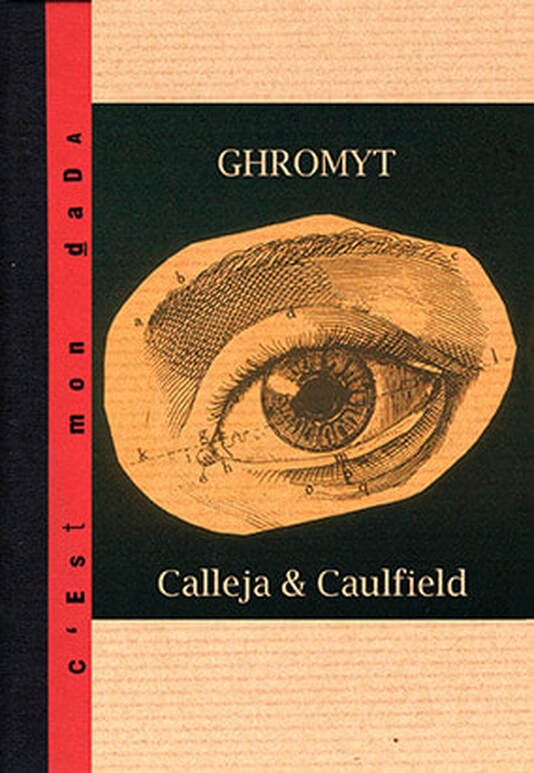
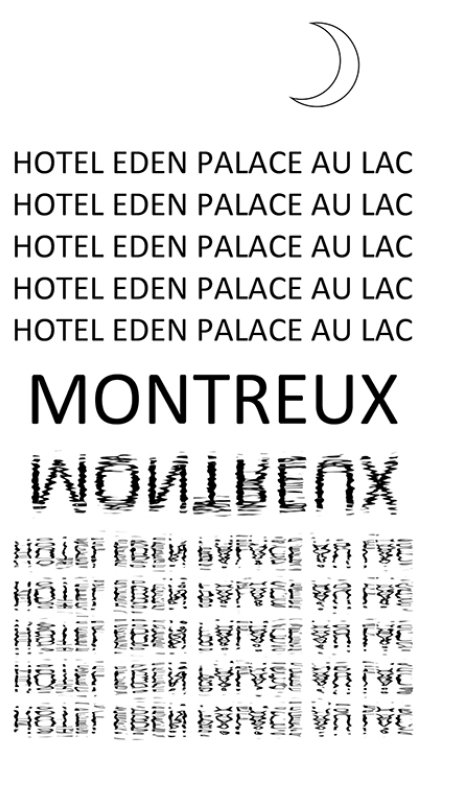
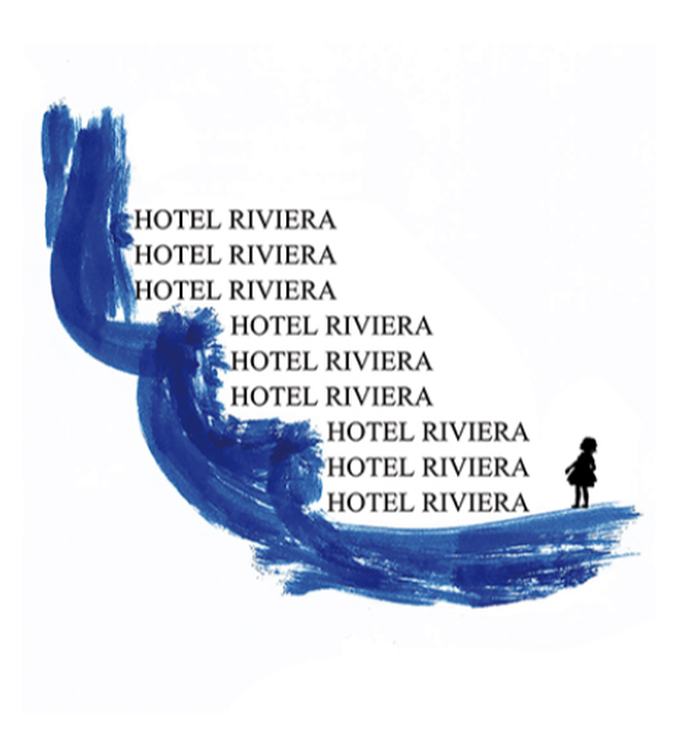

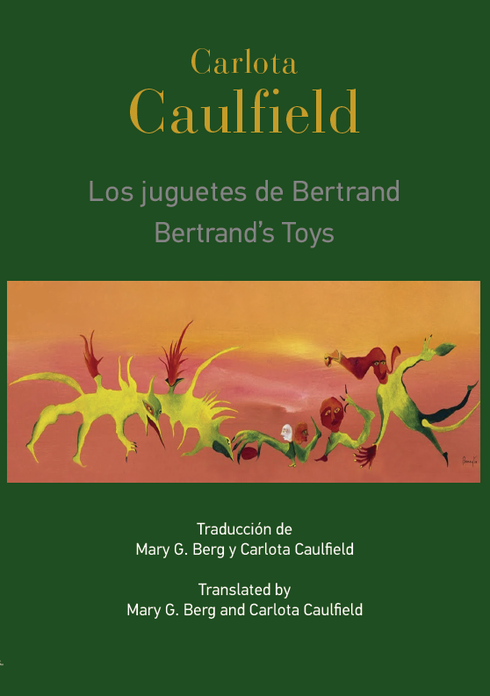

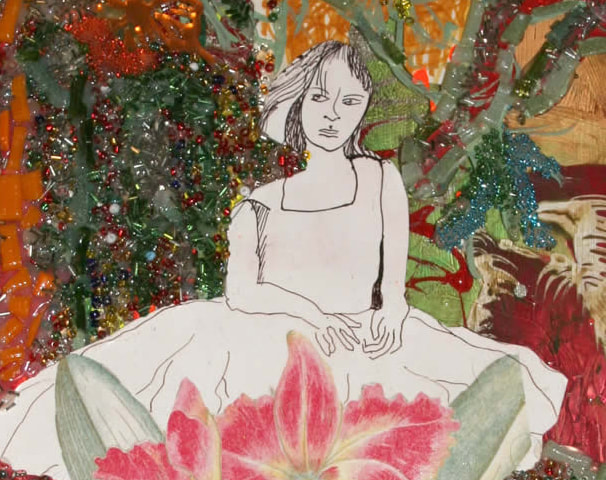
 RSS Feed
RSS Feed